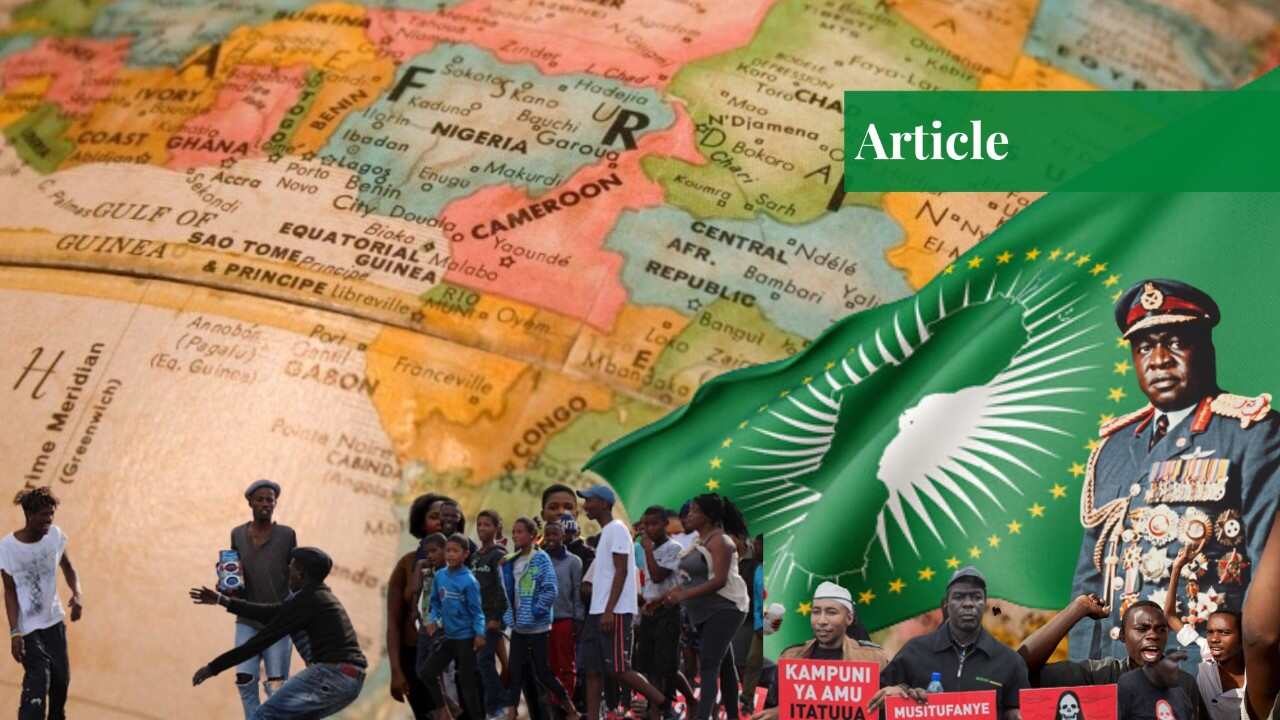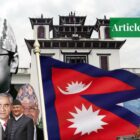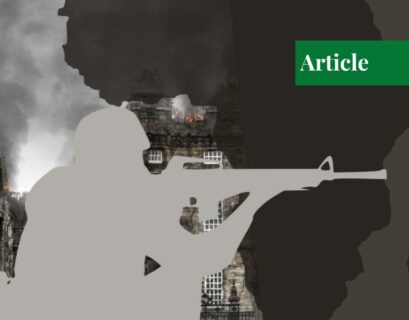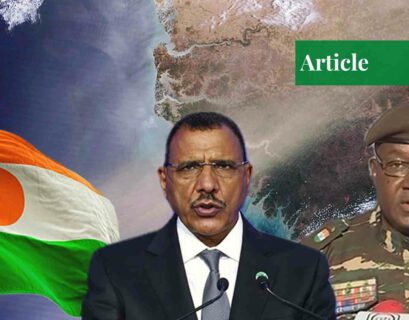Adam Abass is an undergraduate student of political science and international relations. His research focuses on Middle Eastern politics, counter-terrorism, peace, and security in Africa.
Introduction
In response to the military coups in West Africa, some of the countries in the region have carried out counter-coup attacks, which in some ways demonstrates how the military is interested in taking over the affairs of their country’s decision-making and, to some extent, reveals the mistrust in the military as hope for a return to constitutional rule wanes.
However, the escalation of military coups in West Africa has sparked strong reactions from the regional bloc and the international community. Important diplomatic partners have also increased political and economic pressure on the military to cede control to civilians.
The military regime in the region has expressed its commitment and readiness to hand over power to democratic rule in the effort to transition to democracy, but in light of the recent counter-coups in Burkina Faso and Mali, it is unclear how prepared the military junta (specifically in countries like Mali, Guinea, and Burkina Faso) in the region is to return to its barracks and hand over the social contract of its respective countries back to a civilian rule, as well as what could be on the line for democracy in these nations.
Mali
After nearly ten years of civilian rule following the military coup in 2012, the Malian armed forces headed by Colonel Assimi Goita staged a coup in August 2020, leading to the arrest of the president and other top government officials. The official announcement of the military coup resulted in the suspension of the constitution, the dissolution of the government, and the resignation of the president.
The National Commission for the Salvation of the People (CNSP), which was in charge of the coup, brought attention to the dire situation in the nation. In particular, the government’s failure to address the insurgency in the nation’s northern region led to the overthrow of the democratic leadership. This led to widespread celebration and acceptance of the military among the populace, who see it as their final hope for changing the status quo.
The CNSP proposed an 18-month political transition and a draft for an interim government that would be dominated by the military in response to external pressure from regional organizations and foreign partners, including the United States and former colonial power France, for a return to democratic rule. A two-year transitional period was announced, and in February 2022, a general election would be held; a show of relief for the restoration of civilian authority began to grow, leading the regional bloc ECOWAS to lift its embargo on the nation.
A counter-coup was launched by the military in the transitional government in May 2021, nine months after the first coup, accusing the civilian members of the transitional council of sabotage and violating the charter of the transitional government after a cabinet reshuffle that resulted in the removal of both the interim President Bah Ndaw and Prime Minister Moctar Ouane by the military.
The leader of the coup plotters, Asimmi Goita, who was then vice-president of the transitional government, was consequently appointed by the Mali constitutional court to be president. After the coup in 2021, the military-dominated government reaffirmed its commitment to a peaceful transition and a reasonable schedule for the conduct of the election in 2022.
However, in February 2022, the month of the election, the transitional parliament council approved a five-year transition plan, further extending the military’s stay in power. With two coups in less than a year, the military administration remaining in power for five years with no elections in sight, and ongoing insurgent attacks intensifying in the north, political instability continues to afflict the Sahelian nation as its democratic institutions are once again in decline.
Guinea
Few months after Mali’s second military putsch, Guinea’s elite forces, led by commander Mamady Doumbouya, planned a coup against the government on September 5, 2021. Following the military takeover, the constitution and the civilian administration were suspended, and President Alpha Conde was detained by the army. The National Rallying Committee for Development (CRND), the military junta, accused the civilian government of extensive corruption, economic slowdown, and elite control over state resources, which it claimed had forced the military into politics.
The civilian and opposition groups initially protested against President Conde’s third term after changing the constitution through a constitutional referendum to allow him to run for office for a third term against the backdrop of a two-term limit, signaling the president’s path towards an autocratic rule. The military coup, however, was met with strong support from both groups.
The military was unfazed by the ineffective sanctions of the regional bloc and condemnation from the international community as putschist commander Mamady Doumbouya was named the interim president on October 1st, 2021. A transitional charter was proposed by the military council, which created some institutions like the CRND headed by the junta and the National Transition Council, a legislative body that would offer a chance of a national conversation on the restoration of constitutional government.
After decades of authoritarian rule from both the military and the civilian government since independence, the CRND in May 2022 proposed a 36-month transitional plan to civilian rule with approval from the parliament, which extends the putschist control of the country for three years.
Burkina-Faso
The landlocked nation of Burkina Faso was affected by the wide-spread contagious effects of military coups in West Africa when a group of army officers under the command of Colonel Paul Henri Damiba overthrew President Kabore in late January 2022. The coup was the result of rising public discontent with the civilian government.
The junta, which is governed by the patriotic movement for safeguarding and restoration, announced the beginning of military rule and justified its action by blaming president Kabore’s administration for failing to quell the country’s ongoing conflict with violent extremist groups in the northern and eastern part of the country since 2015.
The junta announced the transitional government, which would run the nation’s affairs during the transitional period, and stipulated that the position of president would be held by the leader of the coup, Damiba. The transitional government was given a three-year term, and an election was scheduled for early 2024.
The Damiba military-led government had pledged to improve the nation’s deteriorating security situation as the extremist group took control of more than 40% of the country’s territory; however, attacks became routine under his rule. This failure sparked “a coup within a coup,” a moniker for a counter-coup by a group of frontline soldiers.
The second coup, led by the young officer captain Ibrahim Traore, overthrew the Damiba government on the grounds that it had failed to fulfill its initial goals of grabbing power and offering the Burkinabe the security they had been longing for. A new military junta came into power a few days after the second coup, and Ibrahim Traore, the putsch leader, was named the president of the transitional council.
As a result, there is rising doubt over the election, which is slated for early 2024. The future of a restoration to democratic government appears unpredictable in light of the military’s continued extension of its hold on power and the military’s internal countercoup, yet it is still too early to draw any firm conclusions about the military’s commitment to democracy.
However, numerous indicators and circumstances continue that may jeopardize these nations’ smooth transition back to democratic governance. According to an afrobarometer survey conducted in Mali and Guinea, the civilian government in coup-led countries has been losing the support of the general public.
The majority of Malians (82%) expressed trust and support for the military, compared to (47%) shown towards the civilian president; this was also evident during most coup events, where citizens expressed strong solidarity with the military, whom they saw as the last hope of changing the country’s course after long years of civilian government with little advancement, particularly in countries that has been devastated by terrorism.
The military’s desire for power has further motivated them to extend their tenure in office, as seen in the case of Mali, which extended its tenure for three years in the month which an election is to be conducted. When election time approaches in Guinea and Burkina Faso, this trend is likely to be repeated.
Finally, the restoration of democracy may be jeopardized if undemocratic state actors were to establish ties with junta, as in the case of Russia, a country known for aiding autocratic regimes. Moscow has established itself as a trustworthy partner for the junta to turn to for assistance as the West continues to withdraw support from the military-ruled countries and growing anti-western sentiment is fueling the region, especially that of France.
The military junta gains by forging ties with Russia, which is not known for upholding democratic principles, as it won’t be forced to return to democratic rule in exchange for aid. Meanwhile, Russia gains by establishing influence in an undemocratic military-led nation in Africa as it won’t face opposition from other powerful states, providing a platform for Kremlin expansionism.
West Africa is moving toward a perilous scenario, thus the international community, the democracies in the region, and the continent as a whole must not give up on attempts to reinstall democratic ideals there.
If you want to submit your articles and/or research papers, please check the Submissions page.
The views and opinions expressed in this article/paper are the author’s own and do not necessarily reflect the editorial position of Paradigm Shift.


















